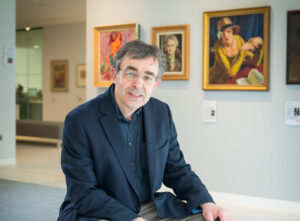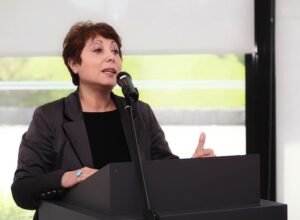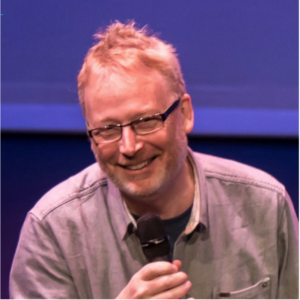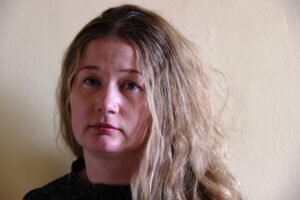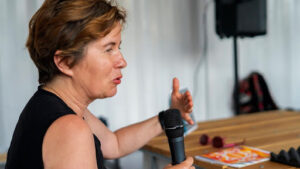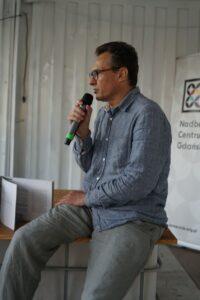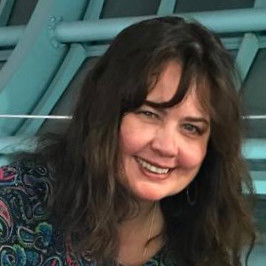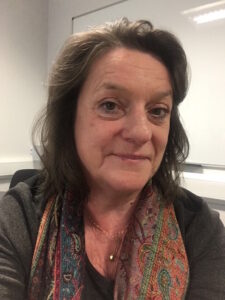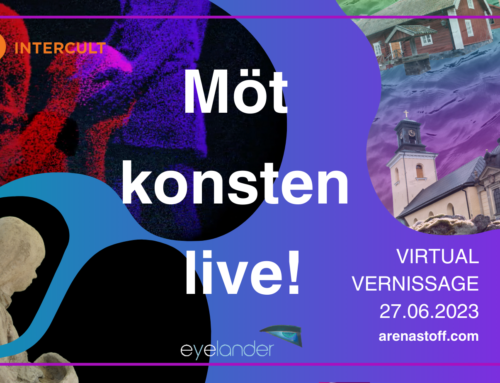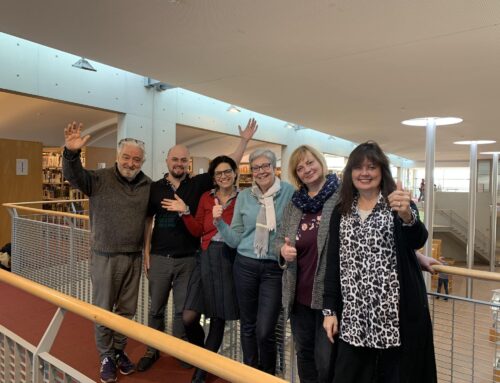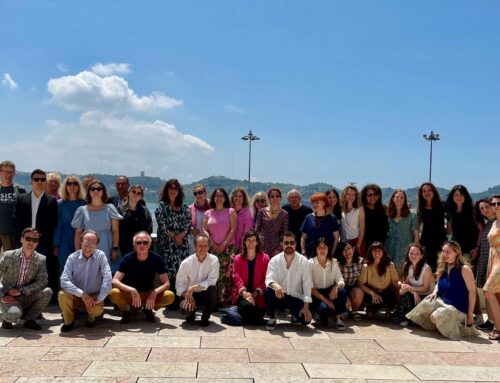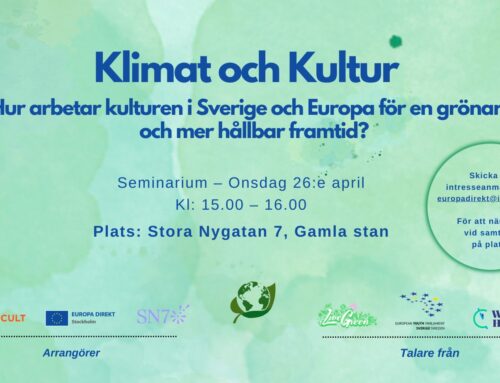Invitation to webinars on Wednesday 16 December
What’s the future of waterfront heritage zones in the post industrial cities of Europe?
Part 1: 12.13:30 CET
Part 2: 14-15:30 CET
Part 1 : 12-13.30 CET
Impact of culture and European projects- from cultural planners and expert’s perspective
In these two webinars we invite you to a conversation with internationally renowned authorities in the field of cultural planning, regeneration and community art, as well as to a reflection from participating artists and partners on the results and the key challenges in the project.
The webinar will be live streamed via Facebook.
Read about the second webinar (part 2) HERE
From 2017, the six European cities of Govan, Gdansk, Levadia, Limerick, Ostend and Stockholm have collaborated in an artist led exploration of what’s next for waterfront industrial heritage in the context of community development. The main focus of these Creative Europe-funded endeavors has been strengthening co-operation between artists (who are often facing competing agendas) in the context of urban planning.
As the project draws to close, Wednesday 16th December 2020 between 12.00 and 13.30 CET (11.00 and 12.30 GMT) is an opportunity to reflect on the impact the work of this pan-European six cities exploration has had on the artists and partner organizations involved in the delivery. Has the contribution of artists helped to influence policy, strengthen stakeholder involvement and amplify community voices? Is there evidence of impact on planning decisions? What were key challenges/issues/barriers?
To support us in our deliberations, three of the big thinkers around culture in the 21st Century will join us: Dr. Franco Bianchini , Associate Director of the Centre for Cultural Value, University of Leeds, Lia Ghilardi, urban sociologist. Member of the Academy of Urbanism, and a Fellow of the Royal Society of Arts and François Matarasso, community artist, writer and researcher, with comments from Professor Katarzyna Kosmala, University West Scotland, Agnieszka Wolodzko, curator from Gdansk and Roman Sebastyanski, urban planner and activist from Gdansk, as well as PhD researcher from UWS.
Franco Bianchini – Cultural strategies in European port cities: some key themes and issues
The talk will discuss aspects of the cultural richness of port cities, including in many cases anti-hierarchical outlooks and traditions of artistic accessibility and inclusiveness. I will go on to highlight the pioneering or at least influential role played by port cities in culture-led urban regeneration in general, and in initiatives like the European City/Capital of Culture (ECoC) in particular. The talk will then focus on a case study of “Cities on the Edge”, a multi-disciplinary programme of cultural activities in which I was centrally involved. Cities on the Edge (which formed part of the calendar of Liverpool ECoC 2008) was a cultural partnership between six European port cities: Bremen, Gdansk, Istanbul, Liverpool, Marseilles and Naples. It explored the multiple meanings of the concept of ‘edge’ and was founded on the assumptions that port cities generally have progressive ‘soft values’ and a tendency to rebelliousness, hedonism and autonomous cultural traditions. I will show some examples of projects within Cities on the Edge and consider some key questions and challenges emerging from this experiment. I will conclude by briefly discussing the phenomenon of the popularity of right-wing populist ideologies in many European deprived port cities and coastal areas and wondering whether Cities on the Edge was based on a self-mythologisation of the identities of port cities which does not correspond to contemporary political realities. The final section of the talk will consider some possible cultural activist responses to right wing populism, and how future political scenarios may impact on European port cities during and after the pandemic.
Lia Ghilardi – Local Cultural DNA Mapping: A Tactic For Co-Creating Sustainable Cities
If the pandemic has amplified the threats and systemic challenges that have already been bubbling under the surface of our daily lives it has also given us a chance to reset, rethink and reimagine more sustainable models of urban development capable of delivering socio-spatial justice. The argument I want to put forward is that we need to see cities not just as machines for bringing in revenue, but as systems of relationships, each with their own unique texture of interconnected social, cultural, spatial and economic dynamics in a constant state of flux.
I will also argue that system thinking is key to creating resilient and equitable cities and that more devolution of power to localities is needed. Finally, I will introduce examples of tactics such as local DNA mappings and similar processes that disrupt the established order and hierarchies. I will argue that such disruptions can help communities to publicly articulate diverse perspectives and meanings in a non–hierarchical way while at the same time encouraging decision makers to overcome the bureaucratic obstacles that would otherwise block change.
François Matarasso – Human capabilities and cultural democracy in the Rome Charter
The talk will focus on the five capabilities at the heart of the 2020 Rome Charter, without which the right to participate in the cultural life of the community (article 27 UNDHR) cannot be exercised.
Each panel member will receive comment from one of our own experts on the Memory of Water project. Professor Katarzyna Kosmala, University of the West of Scotland (shadow expert on Memory of Water) will respond to Franco Bianchini; Roman Sebastianski (whose cross sectoral working practices in the Shipyard of Gdansk have made impact on heritage outcomes) will respond to Lia Ghilardi and Polish curator Agnieszka Wolodzko, will respond to the contribution from François Matarasso.
The Cultural Planners webinar at 12.00 CET will be facilitated by Liz Gardiner, Fablevision Scotland and Iwona Preis, Intercult, Sweden .
The second part of our webinar will open the floor to questions. For example, when we started working on Memory of Water we had no idea the pandemic would amplify the threats and systemic challenges that had already been bubbling under the surface of our daily lives. Perhaps Covid-19 has also given us a chance to reset, rethink and reimagine more sustainable models of urban development?
MEMORY OF WATER
From 2017, the six European cities of Govan, Gdansk, Levadia, Limerick, Ostend and Stockholm have collaborated on an artist led exploration of what’s next for waterfront industrial heritage in the context of community development. The main focus of these Creative Europe-funded endeavors has been strengthening co-operation between artists (who are often facing competing agendas) in the context of urban planning..Activities have been participatory and co-created with local communities, including: artist residencies; supporting community activism; discursive events engaging planners, architects, politicians and local residents; shared learning ; best practice knowledge exchange and debating new ways forward together. With an ‘artist’s eye view’, Memory of Water (www.memoryofwater.eu) engaged in uncovering alternative approaches to regeneration and citizen-led planning with questions around bridging the gap between grass roots visioning and implementation; how to avoid gentrification and whether or not artists are vulnerable to being used for different agendas (e.g. ‘artwash’: the term for landowners/developers using artists to raise land values.
About Key-note speakers & panelists
Iwona Preis
Iwona Preis is the C.E.O. of Intercult Stockholm, Sweden, leading the organisation´s strategic development and daily operations. In her role as leader of cultural NGO Iwona is an initiator and international culture projects, managing international partners teams from EU and beyond. On the thematic level she works with the role of culture in urban development for social sustainability, with focus on cultural heritage and climate changes, also with changemaking methodologies for cultural organisations.
Liz Gardiner
Elizabeth McLellan Gardiner (M.A. DipSecEd, PGMAECP) is trading as Cultural Planning Practice, Liz Gardiner is an artist, teacher and free-lance consultant specialising in cultural planning. As a Doctoral Researcher and Associate Lecturer at the University of the West of Scotland, she teaches and researches in cultural planning. As executive director of Fablevision, she develops and delivers case study examples of cultural planning in practice – often in partnership with other third sector organisations, community development trusts or local authorities.

